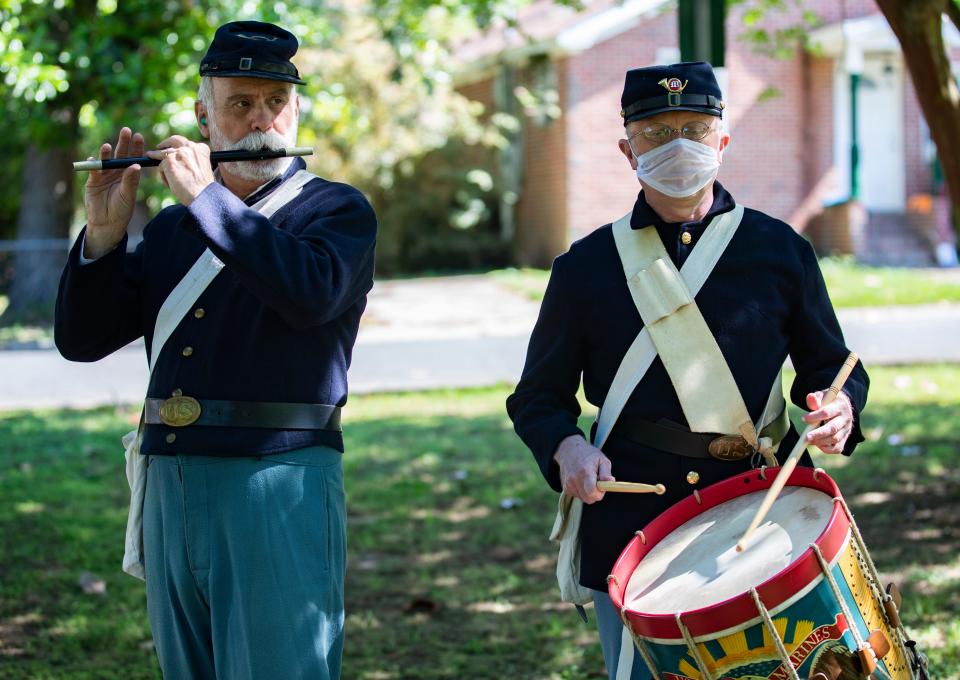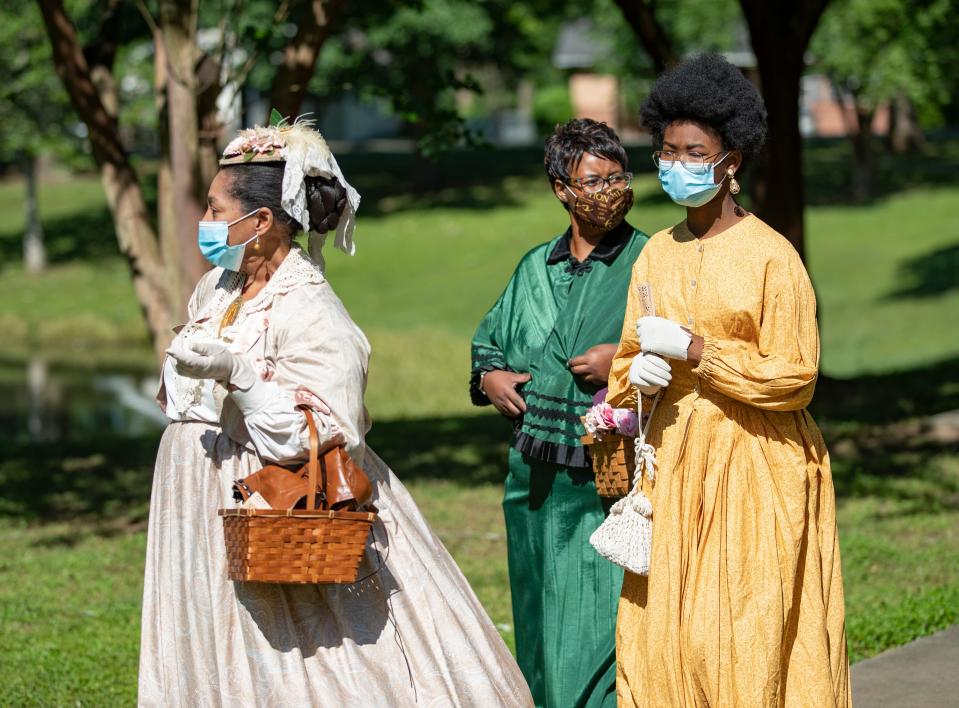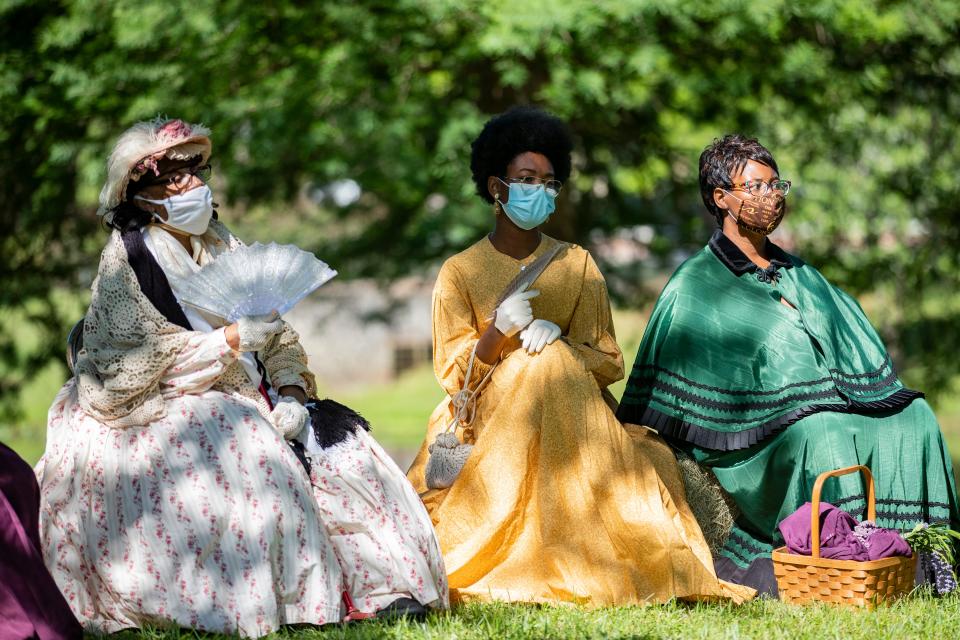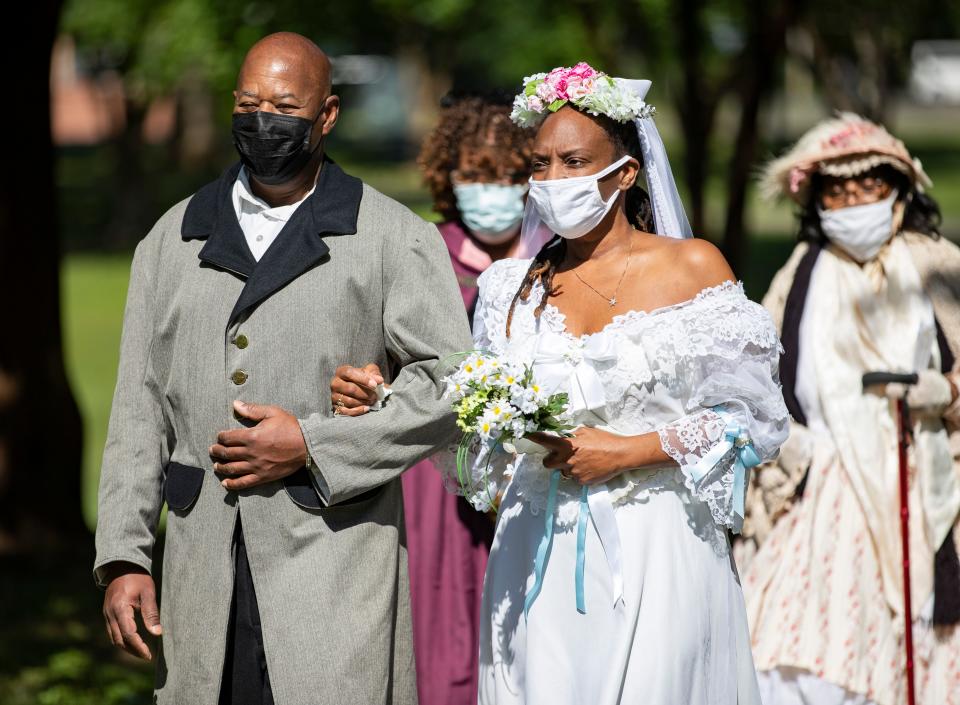'Joy and jubilation': Tallahassee celebrates Emancipation Day on May 20
The next time you travel on Monroe Street near a lake, a sparkling fountain, and wandering geese, stop for a moment at Lake Ella. May is a good month to do it.
If you listen carefully — with the ear of an historian — you may hear the sounds of celebration, camaraderie, home-made music, and thanksgiving. If you were lucky enough to evoke some of those sounds, you might quickly figure out that the fellowship and picnicking were from a past when formerly enslaved Tallahassee dwellers would come to what was then Bull Pond for their annual Emancipation Day celebration.
Emancipation Day Schedule: Tallahassee observes Emancipation Day with church bells, re-enactment celebrations
Soul of Southside: Celebrate the Soul of Southside Tallahassee this week with drum line, fish fry and more
This year the city, as it has done in the past, is celebrating during the month of May with a series of events meant to lead up to the May 20 reading of General Edward Cook’s 1865 proclamation from the Knott House steps that the Emancipation Proclamation was from that moment in effect.

Major General Quincy Gillmore’s “Special Order Number 63” had just arrived and stated that “the people of the Black race are free citizens of the United States.”
There was indeed dancing at Bull Pond that night! Of course, Abraham Lincoln had actually signed the Emancipation Proclamation two years before and set it to become the law of the land January 1, 1863.
Earlier this month on May 7, "A Walk Through Living History Day in the Park" was the opening of several community events meant to better acquaint Tallahassee with its history.
All of the events are sponsored by the John G. Riley Foundation and the City of Tallahassee, the Second Infantry Regiment USCT, among others.
Every year at the Old City Cemetery an Honors Ceremony is held during which the reenactors of the Second Infantry Regiment United States Colored Troops Living History Association provide the 21-gun salute. The graveside Laying of Wreaths will take place to honor the fallen at the Old City Cemetery from 10-10:45 a.m. on May 20.
And this year, following the Knott House reading of the Emancipation Proclamation earlier in the day, a celebration that had been put on “COVID-hold” for the last two years will resume. The annual Emancipation and Abolitionist Ball, with reenactors formally dressed in the uniforms of the Union Army, will be held at the National Guard Armory on Easterwood Drive.

The members of the Second Infantry Regiment USCT also participate in reenactments of the battle at Natural Bridge, where in March 1865, the regiment was decorated for valorous service. But this year, the military gentlemen will be waltzing and perhaps doing Civil War quadrilles at the Ball.
Julianne Hare, the group’s historian, says that the title of the event, “the Emancipation and Abolitionist Ball” is somewhat of a misnomer, meaning that Abolitionist Balls “…were held in the north long before the threat of the Civil War. Attendees would have worn their 'Sunday best' or formal attire. Most of them were pot-luck, buffet events. Funds raised were used to support anti-slavery publications, offset travel expenses for those who spoke at public venues, help slaves escape and to maintain offices. Well-known American Abolitionists were of all faiths and racial groups. Anything they did, they did together — to the limit of local law.”

Hare says that, “During the Civil War — through a series of legal actions, escaped slaves or those liberated by the Union forces — were designated contraband (essentially spoils of war). The Federal government established refugee camps for them. Many of the able-bodied males joined the military. Wives, children and others lived in the camps. Abolitionist Society members volunteered as teachers, medical personnel and other workers."
The Emancipation 'Balls' however, were closer to barn dances and picnics than fancy dress balls.
Hare notes that, “While Abolitionist get-togethers were influenced by hope (and sometimes danger from supporters of slavery), emancipation events were filled with joy and jubilation.”

Though there will be dining fare similar to that at state dinners held for Abraham Lincoln, Hare indicates that the dancing at this year’s Ball will not all be from 157 years ago. “Very likely, by the end of the evening there will be entertainment and dancing that is very modern indeed.”
And that is the likely tenor of the evening on May 20 from 7-11 p.m.. Even though there has been a recent gubernatorial proclamation that the emancipation of the enslaved in Florida will be celebrated on June 19, known as Juneteenth, the day when the proclamation was officially made in Texas in 1865, many organizations will continue to find May 20th their day of jubilation.
Certainly that is the day the National Guard Amory will be swirling with the spirit of freedom and inclusion.
If you go
What: The Emancipation and Abolitionist Ball
When: 7-11 p.m. Friday, May 20
Where: National Guard Armory, 1225 Easterwood Drive
Tickets: $50; go to the2ndusctlha.org/calendar-of-events
Never miss a story: Subscribe to the Tallahassee Democrat using the link at the top of the page.
This article originally appeared on Tallahassee Democrat: Tallahassee celebrates Emancipation Day with ceremonies on May 20

